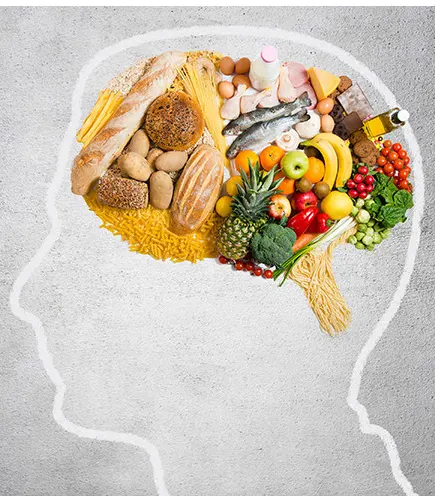For years, research on healthy eating has focused primarily on physical health and the link between diet, weight and chronic disease. But the emerging field of nutritional psychiatry studies how foods can make us feel.
“Many people think about food in terms of their waistlines, but it also impacts our mental health,” said Uma Naidoo, a Harvard psychiatrist and director of nutritional and lifestyle psychiatry at Massachusetts General Hospital. “It’s a missing part of the conversation.”
The connection between the stomach and the brain is strong, and it starts in the womb.
The gut and brain originate from the same cells in the embryo, Naidoo said.
One of the main ways the brain and gut remain connected is through the vagus nerve, a two-way chemical messaging system that explains why stress can trigger feelings of anxiety in your mind and butterflies in your stomach.
Food can also influence the state of your microbiome, and some species of gut microbes have been linked to higher rates of depression. Even the brain chemical serotonin, which regulates mood, has a strong gut connection. Only 5% of your body’s serotonin is made in the brain; the rest is made, stored and active in the gut, said Naidoo, author of the new book “This Is Your Brain on Food.”
“We have to eat; it’s a basic need,” said Naidoo, who is also a professional chef and instructor at the Cambridge School of Culinary Arts. “And food is also a very powerful lever in terms of our mental health.”
Often people try to influence their mood by eating comfort foods. The problem, experts say, is that while those foods typically offer a tantalizing combination of fat, sugar, salt and carbs that make them hyperpalatable, they can actually make us feel worse.
Traci Mann, who heads the health and eating laboratory at the University of Minnesota, ran a series of studies to determine whether a comfort food improves mood. Participants were asked the following question: “What foods would make you feel better if you were in a bad mood?”
Before each test, the participants watched film clips that were known to elicit anger, hostility, fear, anxiety and sadness. After the film, the viewers filled out a “negative mood” questionnaire to indicate how they were feeling.










